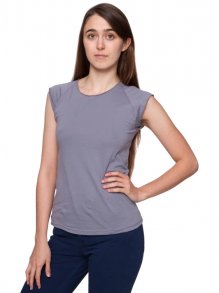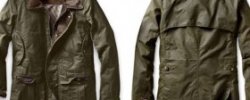|
The Branding of Blank Tees California Apparel NewsAlison A. Nieder August 18, 2000 The 31-year-old president for the organization is on the top, a number of workers tend to be performing an impromptu conferencein Frenchin the hallway. And there's a Chihuahua in stairway that basically has to be taken for a walk. It is not your typical T-shirt maker. And that's just how Dov Charney, co-owner of Los Angeles-based American Apparel wants it. Us Apparel manufacturers T-shirts for the imprinted T-shirt marketscreen printers, embroiderers and distributorstypically a price-driven commodity company. Into this scenario walks Charney selling a T-shirt for somewhere between $3 and $4 in an industry that usually pays less than half that price. "People look at me personally like, $3 a piece for a white T-shirt!" they truly are accustomed spending $1.40, $1.30, $1.20, " Charley says. The hyper-kinetic president justifies his greater prices by drawing an assessment between their organization together with ubiquitous coffee store *Starbucks*-a contrast he is fond of making. "The bottom line is, equally people will pay $3 or $4 for a Starbucks coffee, they are going to spend $3 or $4 the correct T-shirt, " he says. "Not all coffee has got to be 50 dollars." Us Apparel is within the procedure for creating its brand in business-to-business industry, concentrating on the imprinted T-shirt market. That's a narrow focus in a broad market. Certainly, Charney estimates there are 100, 000 display screen printers and corporate T-shirt purchasers in U.S. and Canada. That adds up to an industry with annual product sales in the $7-to-$10 billion range. "We're perhaps not a branded organization like *Guess?* or *Mossimo* or *Fresh Jive, *" he says. We're a commodity-branded company." Charney's objective is always to place American Apparel's T-shirt in the same category of product that made the jump from commodity to brands, like *Hanes* underwear and socks and *Levi's* 501 jeans. *Road Show* With Charney as the point man, the business will continue its business-to-business brand name building at *MAGIC International* in Las Vegas this thirty days together with *Action Sports Retailer Trade Expo* in San Diego in September. And the ones shows are not even the primary push. The *Imprinted Sportswear Shows* (ISS), that are held six times annually in various areas nationwide, are certain to rake in big product sales for the business. It really is at ISS that American Apparel can achieve its main marketplace: vendors, embroiderers, screen printers and advertising T-shirt producers. Charney doesn't exclude ever before selling directly to stores, but he's adamant that his existing focus could be the imprinted T-shirt market. "we are selling to individuals who need 1, 000 to 5, 000 T-shirts at any given time for an event, for a marketing, for accurate documentation label, for a business job, " he states. *Ready for Change* Mainstream wisdom inside T-shirt business suggests that price pushes industry and only huge manufactures with enough economies of scaleor adequate offshore manufacturing to offset domestic costswill survive. But Charney points to industry-wide indications the T-shirt attire industry is ready for modification. "*Fruit associated with the Loom* is in bankruptcy and absolutely nothing innovative features com from Hanes for some many years, " he says. "We're producing T-shirts that are increasingly made for the imprinted T-shirt business. " The company creates men's and ladies' T-shirts produced from lightweight combed cotton fiber in fine-gauge jersey and baby rib, which Charney describes as gentler plus luxurious than the standard T-shirt textile. The women's stylescalled Timeless Girlare fitted with fashion-forward styling details, such as for instance deep-V, keyhole and halter necklines, limit and three-quarter sleeves and hoodies and part vents. "there is a huge opportunity when you look at the ladies's segment for the marketplace, " states Charney. "there is a Hanes Beefy-T for men, but there's no equivalent for girls. We are planning to provide that equivalent." The guys's collectioncalled US Standardis much more fitted versus standard Hanes or Fruit of the loom T-shirt, and it is made of lightweight combed cotton jersey and rib. "you want to supply an alternative to the relaxed-fit period, " Charney said, nothing that while his women's tees appeal to most female consumers, their guys's range attracts a more alternate customer. "We believe if we desire to be modern and revolutionary, we need to be different from what exactly is available, " he states. Part of that huge picture involves being ready if you are sought after. Charney keeps an inventory of colors and styles available to fill instant orders. "at this time we stock 500, 000 pieces in [the l . a .] showroom, " he claims. "we-ship 10, 000 to 50, 000 pieces out everyday. *10 Several Years Of T-Shirts* Charney's approach to the T-shirt business is unconventional, nevertheless Montreal native's origins are deep. He started decade ago purchasing U.S.-made tees to offer on the street in Montreal. "at that time, in Canada, they did not possess high quality, " he states. "i recently imported them and had been attempting to sell tees to my buddies." The company expanded beyond various T-shirts for buddies, and Charney started production on a subcontracting basis in South Carolina in 1991. If Charney had arrived a decade earlier, he could have experienced a lengthy effective run. However in the first 1990s, the U.S. domestic knit industry had been beginning to buckle beneath the strain of offshore competitors. Small companies combined with larger ones or went out of business. Big businesses started searching overseas for joint venture options. Charney saw his East Coast getting base shrinking as his western Coast sales grew. But he didn't give consideration to going the organization western until one of his true technicians from the East Coast shut shop and forced him into action. "certainly one of my sewers closed up in the exact middle of a purchase, " he recalls. "and so i said, 'forward the textile to la, " in which there was clearly a sizable share of technicians able to manage quick turns. Charney kept the South Carolina side of the business open until 1998 in order to maintain continuity together with his clients. That year Charney met his existing company partner, Sam Lim, while finding a contractor in la (as Charney informs it: "we came across my partner beneath the 10 highway, " where Lim had a sewing store.) Charney and Lim joined up with Sam Kim to start out a contracting company under the title "Two Koreans and a Jew" (Kim has actually since sold their share in the industry to Charney and Lim, now operates *Freebird, Inc.* in l . a .). *Going Vertical* United states Apparel is coming to becoming completely vertical. The organization took over full ownership of a factory in Ensenada, Mexico, owned by Lim and another companion. Charney in addition has individually the Montreal-based distribution part... |

|
American Apparel Shiny Nylon Tricot Leggings, Black, Small Apparel (American Apparel Womens)
|







